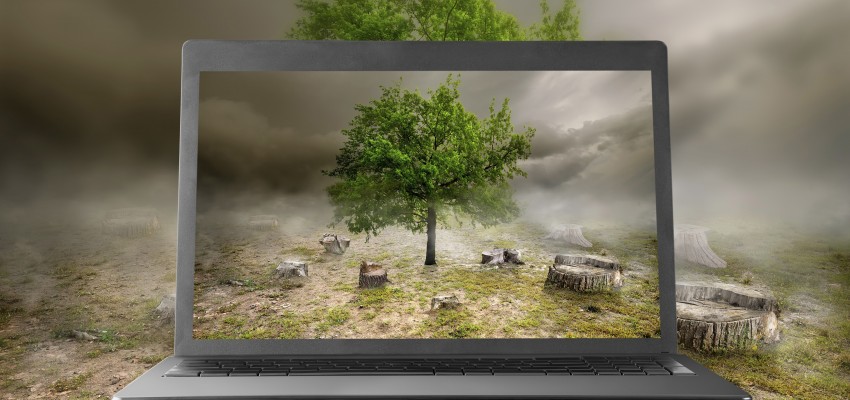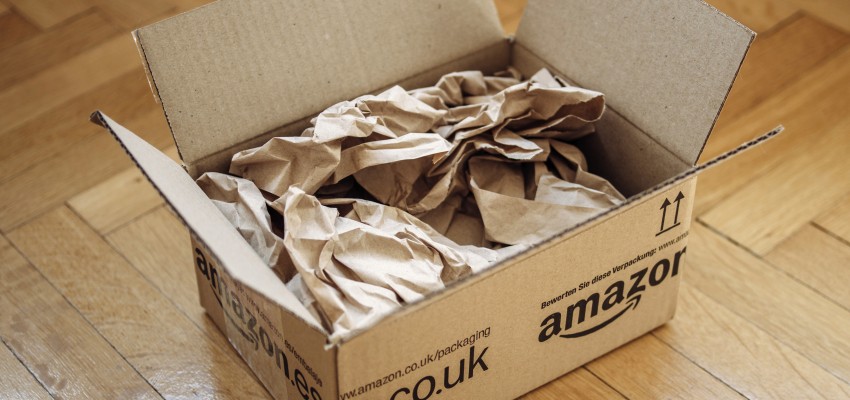Let’s start with a big question and then go from there. Today’s big question is this: How green is the internet? To be fair, it’s a question that’s already been asked – not least at a Google sponsored summit in 2013 that included Bill Gates as a keynote speaker. The answer is, perhaps inevitably, not quite as bright, shiny and cheerfully upbeat as all those shiny screensavers would have you believe. Lest we forget, the internet runs on electricity.
But it’s certainly not all bad news either. Canada leads the world in generating 79% of its electricity from renewables – mostly hydro. Progress in the rest of the world may not be as rapid as we’d all like, but we are getting better at generating cleaner power, and that can only be a good thing. And many internet giants like Facebook, Apple and Google are at the forefront of that move.
That’s the difficult stuff out of the way. This isn’t really an article about the generation of green electricity – fascinating as that area is. Instead, it’s a bit like that scene in Monty Python’s Life of Brian where the Popular People’s Front of Judea (or is the People’s Popular Front?) start to ask themselves just what it is that the Romans have ever done for them.
So rather than getting hitched into an argument about how green (or not) the internet and all that goes with it may be, let’s stop for a moment to count our blessings. There is a lot in the world that can be made easier, quicker, cleaner and greener thanks to our 21st century digital infrastructure. So the question is not really about how green the internet may or may not be, it’s a question of how much greener the internet is than the alternative, or, to put it another way, how much more environmentally responsible it allows us all to be.
A green facilitator
In a big country, where physical distance is not something you can ever take for granted, digital communication is a clear no-brainer. More and more people are recognizing – slowly it has to be admitted – that you don’t necessarily have to fly from Toronto to Vancouver to discuss your company’s strategic direction. You can do it via any number of software packages from Skype up. You can grumble all you like about the power that’s involved in running servers and booting up screens and cameras, but by comparison with the business of propelling airplanes around the skies, that consumption is miniscule.
As much as the technology to communicate and to conduct commerce is now available, what is most obviously lacking is the habit to take up the long distance digital option. Whilst there is an undeniable symbolic aspect to travelling across the width of a continent to meet someone, it is a convention which is surely ripe for reassessment.
The alternative example
What is odd is that the habit of engaging remotely has taken off wholesale in some areas of our day to day lives but not in others. Online shopping has, for example, allowed people to make purchases in a way that is immeasurably greener than the gas pumping business of driving around city streets. No-one would argue that fewer petrol miles is a good thing. Amazon may leave something to be desired in certain respects – their aggressive brand of capitalism certainly has its critics – but you cannot deny that their business model has made a massive difference on the way people shop. And there are a number of online retailers now mimicking Amazon’s distribution model.
As an alternative example, the boom in online gambling makes a strong case for the green credentials of the digital alternative. Millions of people are now playing together from the comfort and safety of their own homes whereas they would previously have been travelling wholesale to their nearest casino outlets. Being able to play online is a considerably greener option than flying into a resort city for what is fundamentally the same gambling experience.
Whatever the carbon footprint of the vast data centers involved, this footprint is no more than a drop in the ocean compared with the millions of travelers and the billions of miles covered by people travelling to brick and mortar casino facilities https://aucasinosonline.com/nz/. The issue of casinos was pertinent in Toronto until May 2013 when a proposed brick and mortar super casino project was voted down in the city’s council. Not building giant casino complexes is a positive green move.
So, while it is easy to make the complaint that digital communication comes with a carbon footprint – and it undeniably does – it should be remembered that much of the time the alternative is far more damaging. And just like Monty Python’s feckless freedom fighters, maybe we would be well advised to stop and think for a minute – just what has the internet ever done for us? The answer is not as bleak as we might imagine.







Among the numerous online casino games platforms https://casinobi.com/ is significantly distinguished by its honest, reliable and very generous scheme of work with a simple and convenient interface. Here, each player can receive online casino bonuses, enjoy the game in an elite gambling establishment, get a lot of fun and the opportunity to play for real money. We have the opportunity to pay for the game with bitcoins, which is confirmed by modern and multifunctional gameplay.
Analytical articles about top online casino bonuses https://jennycasino.com/bonuses/ , online casino real money, slot machines, gambling industry, spotrs betting and casino games presented on various pages of our website, provide an opportunity to get acquainted with reliable and objective data about many gaming clubs operating on the Internet. Despite the fact that our portal indirectly works with individual institutions, we are independent from them and they cannot in any way affect the impartiality of our analytical reviews. This circumstance indicates the possibility of providing exclusively truthful information without distorting real facts, and that undoubtedly distinguishes us from a cohort of other web resources that make up reviews of online gambling projects.
Ekskluzywny Pakiet Powitalny w kasynie: Rozpocznij swoją przygodę z bonusem 250 do 1600 zł przy pierwszym depozycie. Dodatkowo, na start otrzymasz 20 DS na popularnym slocie Gonzo’s Quest. Bonus Bez Depozytu: Załóż konto i odbierz 50 zł lub 25 darmowych obrotów bez konieczności wpłaty. Bonus dostępny dla nowych użytkowników, którzy zweryfikują swój adres e-mail. Darmowe Obroty na Start: Dokonaj drugiego depozytu i zyskaj nawet 100 free spinów na sloty od Pragmatic Play i Play’n GO. Cotygodniowe Bonusy Depozytowe: W każdy piątek doładuj swoje konto i odbierz bonus 50 do 500 zł oraz 30 darmowych spinów na sloty tygodnia. Turnieje i Promocje Specjalne: Weź udział w regularnych turniejach z pulą nagród wynoszącą nawet 100 000 zł lub skorzystaj z czasowych promocji, takich jak cashback do 15.